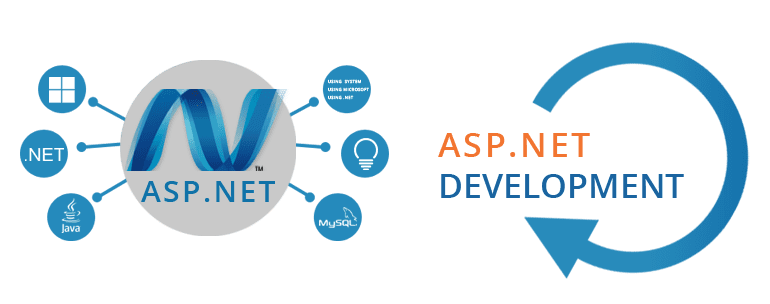Any development team works by ensuring that the use case of .Net is compatible with the software and hardware used. The version history of Microsoft.NET is enough to make heads spin, but knowing which.NET version to use and when is crucial for any developer.
Top .NET Development Usages
As .NET continues to be one of the preferred platforms by businesses worldwide, here are some .NET development use cases:
- Rapid Deployment
With its adaptability and containerization,.NET Core is an excellent choice if you need to roll out a new program version quickly. The best part is that Microsoft’s Visual Studio is an IDE with containerization functionality built in. It frees developers from worrying about setting up their environments and instead requires only the relocation of the container.
To further remove potential stumbling blocks,.NET Core permits deployment on multiple operating systems in addition to Windows.
.NET’s rapid deployment features don’t compromise the framework’s support for third-party UI controls with extensive functionality; doing so would slow down development. The.NET Framework Class Library eliminates the need for developers to create large amounts of duplicate code. This feature speeds up app development without compromising quality or safety.
Partnering with .NET development companies is an excellent option for rapid deployment because it can be set up and used quickly, which is especially crucial during upgrades and bug patches.
- Logistics and Supply Chain Management Scalability
.NET, as mentioned already, is a very efficient platform that expedites responses and boosts output. Logistics and supply chain management applications are another excellent fit for.NET due to its scalability and robustness. .NET provides a toolkit where developers may drag and drop pieces with customizable tracking based on what needs to be monitored for activities to run smoothly.
If a logistics company uses software developed on the.NET framework, it may quickly scale to meet the needs of an expanding business. C# is the most widely used supported language; it has an active open-source community and enough versatility and flexibility to power a genuinely comprehensive logistics program.
Lastly, the.NET Framework is intuitive, so newcomers won’t have difficulty getting up to speed.
- Mobile Applications
While Windows Presentation Foundation (WPF) and Windows Forms are utilized for desktop development, the newer version of ASP.NET, ASP.NET Core, is used for developing dynamic websites and web apps.
Moreover, it is the go-to framework for creating new MVC-style web apps. C#, C++/CLI, F#, and other CLI-compliant languages are some of the many languages developers can use, thanks to the CLR (Common Language Runtime). For those who did not know, .NET now has support for around 50 different languages.
There aren’t many platforms that the.NET framework doesn’t function with, making it a great choice for web apps. These include popular systems like Android, Windows, and iOS. The high compatibility is challenging to compete with, especially in app creation.
Moreover, Microsoft’s Visual Studio has a selection of adaptable integrated development environments (IDEs) that provide developers with all the resources they need in a unified workspace.
Further, ASP.NET Core is a free, open-source, cross-platform web development framework. Hence, if businesses are having trouble using .Net, they can employ custom software development services to create custom solutions.
- Internet of Things
NET’s strong performance, interoperability, and flexibility make it an excellent choice for developing IoT device applications. In particular, ASP.NET Core provides a powerful toolkit that is secure and fast and can be easily integrated with the cloud.
Thanks to the platform’s sizeable community, there is a large pool of reusable code and shared solutions to problems for the service providers to draw upon.
Common IoT boards like the Raspberry Pi and the Hummingboard are supported by the.NET framework, with hundreds of other displays, sensors, and input devices.
- Protected Software, including Payroll and Accounting
Accounting and payroll system applications are other common.NET use cases due to the platform’s reputation for security and reliability. .NET provides services that safeguard software from tampering or manipulation. Small and large enterprises can benefit from the security modules developers create for AR/AP, AP, accounting, inventory management, and other similar functions.
Conclusion
Between 7 and 8 million.NET developers are employed by companies worldwide who use.NET for various project types and sizes. The features that.NET brings to the table cannot be overlooked, and it continues to be a strong force among developers, especially as the digital world expands.
Scalability, customization, and security are essential for keeping apps operational for businesses of all sizes. Despite the NET’s development cycle, developers can usually finish projects without adapting code to newer versions, thanks to the framework’s compatibility and ability to run multiple versions simultaneously.

